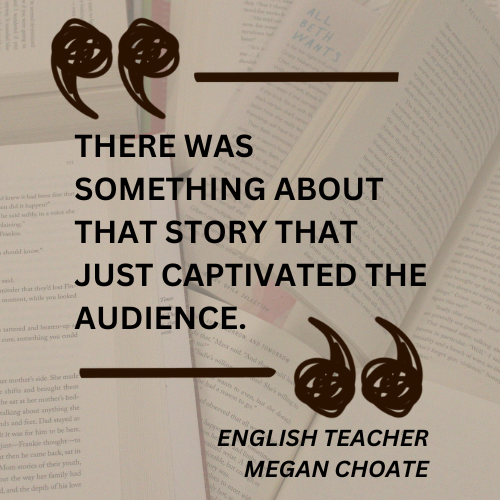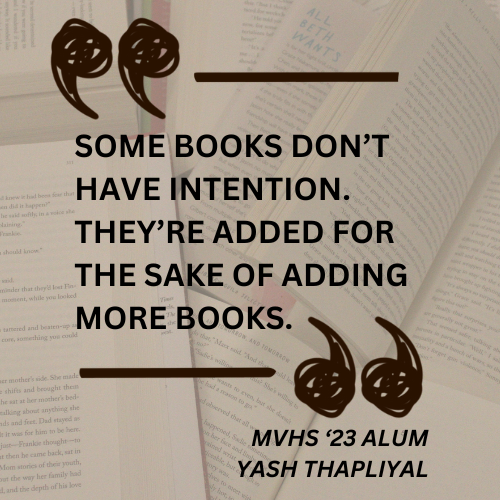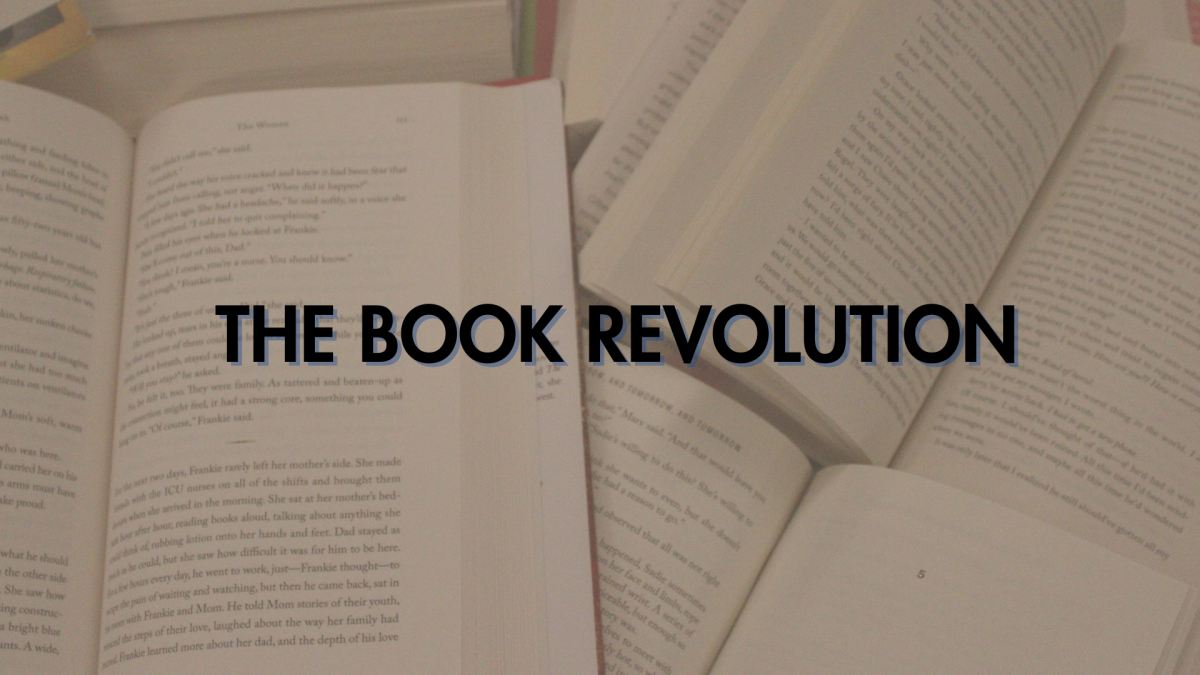When Literature and AVID teacher Megan Choate was in high school, Stephenie Meyer’s “Twilight” series was a huge phenomenon. “Twilight,” a four-novel vampire romance series released from 2005 to 2008, has sold over 160 million copies worldwide and spent 235 weeks on the New York Times bestseller list. Choate recalls the excitement around the books among her peers and the high praise for the series that inspired her to read it.
“[Everyone] was like, ‘Oh my God, this is like the best thing ever,’” Choate said. “Reflecting and reading excerpts now, the quality of the writing is not as profound or great as other books I’ve encountered and read, but there was something about that story that just captivated the audience. It was almost like the quality of writing didn’t matter.”
Following the release of “Twilight” in 2005, other books categorized under the Young Adult (YA) genre have been steadily gaining traction. In the past five years alone, YA is now the fastest-growing genre, with print unit sales having increased by more than 48% since 2018.

Since the popularity of YA books has skyrocketed, sophomore Anika Ramachandran says that she has noticed an increase in the amount of YA novels published compared to when she was younger. Ramachandran says that this sudden spike has caused an oversaturation of the genre, leading to repetitive themes and cliches. She references the book “Powerless” by Lauren Roberts as a recent read of hers that she found to be a close plot parallel to both “The Hunger Games” by Suzanne Collins and “Red Queen” by Victoria Aveyard.
“I feel like I’m just tired of the same cliches repeated over and over and over again,” Ramachandran said. “It’s not something that I’m willing to continue sacrificing my time for because it’s of no use to me. I like to stimulate my mind and I don’t think that repeating books is the way to do it.”
Expanding on Ramachandran’s point, Choate says a larger number of books in a series can correlate with lower quality writing. She notes that often as a series drags on, the story can get repetitive or boring, eventually taking away from the quality of the plot and causing readers to lose interest. According to Choate, the entertainment value of a series heavily depends on how well-written it is.
“Looking at ‘Harry Potter,’ I feel like the writing quality remains strong pretty much all the way through and I think that’s like a testament to [J.K. Rowling] having created such a complex world and complex characters,” Choate said. “Whereas ‘Twilight’ as a romance story was not as deep rooted or complex in nature. I think complexity and nuance in not just characters but also settings and supporting characters is what makes a series strong all the way through.”
MVHS Alum ‘23 Yash Thapliyal agrees with Choate, as he believes that quality is often rooted in the author’s plan for the entire series prior to writing the first book. According to him, authors with a thorough plan tend to write more engaging book series.
“A lot of my favorite authors have a storyline planned out 10 to 15 years in advance, and they’re now trying to get that onto a page into an entertaining format,” Thapliyal said. “Maybe not all the aspects of the story are figured out, but they have a plan for where they’re going and that intention really shows because you’re able to connect things from the end of book five to the beginning of book one, where you could see there was some foreshadowing and some thought process there. Some books just don’t have intention. They’re added for the sake of adding more books.”

According to Thapliyal, the rising quantity of books in general compensates for how some books and series are lacking in quality. He believes that an influx in the number of active authors, and thus books, allows people to be more selective in the books they read by introducing more choice. Choate agrees and also admires how recent books are becoming more diverse, both with their authors and the topics they cover.
“Right now, we’re reading ‘The Magic Fish,’ which is a new addition from last year,” Choate said. “We have a Vietnamese author and it’s a graphic novel, which is a different style of writing. There’s buy-in from the students, at least with what I’m seeing in the classroom — with ‘The Magic Fish,’ students are reading it and generally enjoying it.”
However, Ramachandran believes that many books execute diversity in an ineffective way, where it is clear that the author has not properly researched the culture that they are integrating into their novels. She has noticed this in “Fourth Wing” by Rebecca Yarros, which she believes disrespects Welsh culture, with its audiobook mispronouncing names of Welsh origin.
“Authors use minority languages and minority cultures in their books as their book’s cultures and languages,” Ramachandran said. “I think that’s very predominant in the YA genre, because you want to be unique, but it falls upon the author’s responsibility to respect the cultures and respect minorities.”
Yet another shift is that authors are increasingly listening to their readers and audience, a byproduct of the internet connecting readers and authors alike. Choate says she appreciates how the internet has created a community for readers, even turning reading into a trend on platforms like TikTok’s “BookTok.” While she does not disregard the questionable quality of some novels, she opts to appreciate this influx of YA novels and their popularity rather than resent it.
“Stories are meant to evolve and change with us,” Choate said. “Maybe it’s the English teacher and reader in me, but I think there’s a joy in reading. It’s a cool hobby and a special pastime, and if you have a community around that, I think that that’s awesome.”












